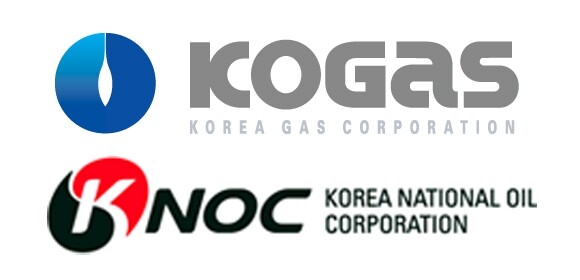hankyoreh
Links to other country sites 다른 나라 사이트 링크
South Korean public enterprises’ overseas resource investments showing low rates of return

South Korean public enterprises have pumped tens of billions of dolalrs into overseas resource development, but more than a decade later they have still only recovered one-third of their investments, a government report shows.
According to the 2016 Overseas Resource Development Report, which People’s Party lawmaker Lee Chan-yeol received from the Ministry of Trade, Industry and Energy on Sept. 25, South Korean companies in the public and private sectors have invested a cumulative total of US$74.63 billion in overseas resource development. But the money recovered as of the end of last year through profits, dividends and asset sales amounted to US$41 billion, or 54.9% of the money invested. More than 10 years have passed since the presidency of Lee Myung-bak, who rapidly increased public enterprises’ investment in overseas resource development, but the amount recovered in earnings is still quite low.
As of the end of last year, public and private companies were working on 496 overseas resource development projects (141 in petroleum and gas and 355 in minerals) in a total of 62 countries. The cumulative money invested by public enterprises (including the Korea National Oil Corporation, Korea Gas Corporation, Korea Resources Corporation and Korea Electric Power Corporation and its subsidiaries) was US$38.85 billion, of which they have recovered US$14.24 billion, or 36.7%. Applying the current exchange rate, these corporations have poured in about 44 trillion won and only gotten back 16 trillion won. The cumulative money invested by companies in the private sector, on the other hand, is US$35.78 billion, of which US$26.76 billion, or 74.8%, has reportedly been recovered. In other words, private-sector companies invested US$3.07 billion less than public enterprises but earned US$12.51 billion more, making the private sector’s return on investment nearly twice that of public enterprises.
In terms of individual public enterprises, the Korea National Oil Corporation (KNOC) had invested US$20.86 billion by the end of last year with returns of US$9.64 billion, or 46.2%. KNOC is currently involved in 27 projects overseas and has yet to recover its investment on 22 of these. In 2009, KNOC signed a contract to acquire the Canadian firm Harvest Energy and had spent US$4.08 billion through last year, but it only earned US$4 million in 2014. Harvest’s performance has deteriorated as the price of Canadian crude oil has slipped, and the company’s book value has dropped to US$254 million, just one-sixteenth of the money invested.
The Korea Gas Corporation (KOGAS) has invested a total of US$12.04 billion and recovered US$4.09 billion, or 34.5%. While a total of 22 overseas projects were underway as of last year, KOGAS had only earned more than the money invested in two of them (including Ras Laffan Industrial City in Qatar). The corporation has invested a total of US$791 million in the Kiwigana mining region in Canada’s Horn River Basin, in which it acquired a 50% stake in 2010, but falling gas prices have dragged down profits, preventing the corporation from recovering its investment. Kiwigana’s book value has plummeted to US$186 million, which is less than one-fourth of the amount invested.
The Korea Resources Corporation (KORES) has invested US$4.35 billion in a total of 32 overseas projects, but its returns amount to just US$420 million, or 9.7%. In addition to this, Korea Electric Power Corporation (KEPCO) and its generating subsidiaries are working on 15 projects in six countries. The Overseas Resources Development Business Act, which was revised in 2015, requires the Ministry of Trade, Industry and Energy to submit a report about overseas resource development during the previous year to the National Assembly before its regular session each year.
By Cho Kye-wan, staff reporter
Please direct questions or comments to [english@hani.co.kr]
Editorial・opinion
![[Guest essay] Maybe Korea’s rapid population decline is an opportunity, not a crisis [Guest essay] Maybe Korea’s rapid population decline is an opportunity, not a crisis](https://flexible.img.hani.co.kr/flexible/normal/500/300/imgdb/original/2024/0430/9417144634983596.jpg) [Guest essay] Maybe Korea’s rapid population decline is an opportunity, not a crisis
[Guest essay] Maybe Korea’s rapid population decline is an opportunity, not a crisis![[Column] Can Yoon steer diplomacy with Russia, China back on track? [Column] Can Yoon steer diplomacy with Russia, China back on track?](https://flexible.img.hani.co.kr/flexible/normal/500/300/imgdb/original/2024/0430/1617144616798244.jpg) [Column] Can Yoon steer diplomacy with Russia, China back on track?
[Column] Can Yoon steer diplomacy with Russia, China back on track?- [Column] Season 2 of special prosecutor probe may be coming to Korea soon
- [Column] Park Geun-hye déjà vu in Yoon Suk-yeol
- [Editorial] New weight of N. Korea’s nuclear threats makes dialogue all the more urgent
- [Guest essay] The real reason Korea’s new right wants to dub Rhee a founding father
- [Column] ‘Choson’: Is it time we start referring to N. Korea in its own terms?
- [Editorial] Japan’s rewriting of history with Korea has gone too far
- [Column] The president’s questionable capacity for dialogue
- [Column] Are chaebol firms just pizza pies for families to divvy up as they please?
Most viewed articles
- 1‘We must say no’: Seoul defense chief on Korean, USFK involvement in hypothetical Taiwan crisis
- 2After election rout, Yoon’s left with 3 choices for dealing with the opposition
- 3Why Kim Jong-un is scrapping the term ‘Day of the Sun’ and toning down fanfare for predecessors
- 4First meeting between Yoon, Lee in 2 years ends without compromise or agreement
- 5Two factors that’ll decide if Korea’s economy keeps on its upward trend
- 6Noting shared ‘values,’ Korea hints at passport-free travel with Japan
- 7Under conservative chief, Korea’s TRC brands teenage wartime massacre victims as traitors
- 8AI is catching up with humans at a ‘shocking’ rate
- 9Months and months of overdue wages are pushing migrant workers in Korea into debt
- 10[Guest essay] Maybe Korea’s rapid population decline is an opportunity, not a crisis